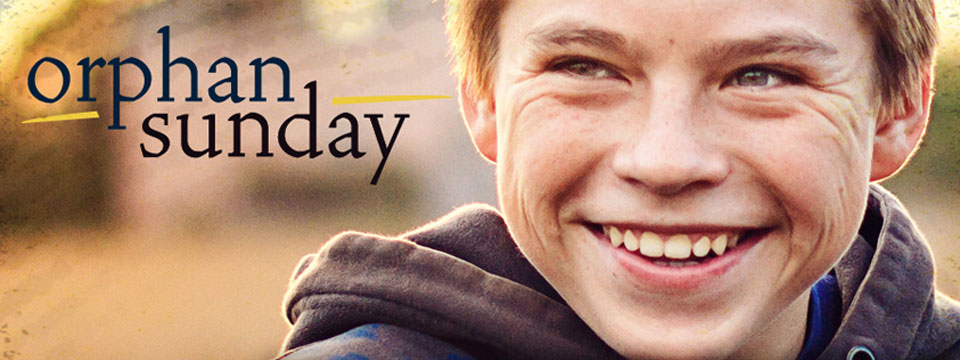
by James Hunt | Nov 20, 2013
Back in his boxing heyday, Muhammad Ali used to tout himself as “The Greatest.” I have been around pastors who say the same thing about their own ministries, albeit more subtly, of course.
As Jesus neared the week of passion that would culminate in His death on the cross, he shared with His inner band of 12 that, “The Son of Man is going to be delivered into the hands of men, and they will kill him. And when he is killed, after three days he will rise” (Mark 9:31, ESV).
How do His faithful respond? By arguing along the way over who will be the greatest. Imagine that. Jesus has just delivered the most personal news and the most dramatic news that will affect all of humanity, and the disciples are so self-enamored that they have a cockfight over who will have more honor in the Kingdom.
I love Jesus’ answer to them, “If anyone would be first, he must be last of all and servant of all” (9:35).
The text goes on to say that Jesus picked up a little kid and held him in His arms and then turned to His disciples and made the application: “Whoever receives one such child in my name receives me, and whoever receives me, receives not me but him who sent me” (9:37).
I find it interesting that Jesus connects the “servant of all” instruction with the “receives one such child” comment. Perhaps one of the greatest ways to be more like Jesus is by simply being willing to lay down self-desire at the feet of a child who has been battered, neglected and wounded. Who knows? Maybe if we do, the scars we see may resemble ones made on a Roman cross.
I wonder if there is a greater fellowship to be had with Jesus when we take Jesus’ words at face value and actually assume He meant them literally. Maybe there really is a “receiving of Jesus” that happens when we receive a child in His name. Just thoughts to consider.

by Ryan Polk | Oct 28, 2013
I have recently begun to figure something out about myself. Usually that is good thing but not so much this time.
I have learned that I have a really good theology of the Bible. I believe it is inerrant, inspired, sufficient, and true. I believe it is God’s Word from creation of this world to the creation of the next. I also have learned that I might not have as good of a theology of obedience.
I have been thinking about this more and more the last couple of months in preparation for the ‘Wait No More’ conference that was at Crossings Church, in Oklahoma City, Oct. 26. This conference was sponsored by Focus on the Family and had as its goal to find homes for the more than 300 children in DHS custody who are currently adoptable and without families.
While both domestic and international adoption is gaining popularity within the church, the adoption of older kids, often with incredible histories of abuse is still a glaring need.
Who better to meet this need than the Church of Jesus Christ? More than 300 kids who need a mother and father, who need love, who need to experience what the rest of us experience every day and often take for granted. This is not easy. It is hard work, very hard work.
The call of Christians to adopt is rooted in the fact that we were all adopted by our Heavenly Father. And redemption was hard work for Christ. Hebrews 12:2 tells us that ‘for the joy set before Him, Jesus endured the cross…’ That was hard work.
Things that are important to God should be important to us as well. The scriptures are full of evidence that adoption and orphans are important to God. Maybe the most well-known is James 1:27, “Religion that is pure and undefiled before God, the Father, is this: to visit orphans and widows in their affliction and to keep oneself unstained from the world.“
This is God’s heart for the orphan. One of the questions that was asked at the conference was “If not you, then who, and if not now, then when?” How would we as individual believers answer those questions? How would our churches?
Proverbs 24:10-12 offers an interesting perspective for us to consider. “If you faint in the day of adversity, your strength is small. Rescue those who are being taken away to death; hold back those who are stumbling to the slaughter. If you say, ‘Behold, we did not know this,’ does not he who weighs the heart perceive it? Does not he who keeps watch over your soul know it, and will he not repay man according to his work?”
What an opportunity for Christians and churches to demonstrate the gospel by providing ‘forever families’ to over 300 children who are in such a need for the most basic and important relationships.
What role will you and your church play in helping them ‘wait no more?’

by James Hunt | Oct 8, 2013
What is the difference in a name? “A good name is to be chosen rather than great riches, and favor is better than silver or gold” (Proverbs 22:1, ESV). According to this proverb, a name makes all the difference in someone’s life. What’s in mind here is not so much someone’s actual name, Bob or Sally, rather, someone’s reputation. To illustrate this reality let’s do a quick comparison of names:
- What do you immediately think of when you hear the name “Miley Cyrus”?
- How about “Lottie Moon”?
Based on the reputation of each of the above, we might label the first a train-wreck and the latter a saint. Of course, we could use this exercise pitting all sorts of people against each other. The point is that reputations matter. Reputations sometimes result in labels. Sometimes labels are fair; at other times, labels miss the mark due to the discoloration of the assessors frame of reference, prejudices, or misguided information.
Labeling people according to perceived reputation can sometimes be wrong. Take for instance the self-deprecating labels Gideon had of himself: abandoned, weakest, and youngest. We might label him, fearful, and unimpressive. God, instead, appeared to him and called him a mighty warrior (Judges 6:12). God changed Gideon’s label because He intended to change Gideon’s reputation. God had in mind to use this timid person to conquer the terrorizing enemy – to be the judge that would rescue God’s people. Before the reputation of Gideon became in actuality “Mighty Warrior,” God labeled him as such. Interesting, don’t you think?
Let’s bring this back to our own day and context. What do you think of when you read the following labels?
- OKDHS – Oklahoma Department of Human Services
- Child trafficking victim
- Orphan
What if we asked God to help us to see each entity or person not according to current reputations but rather according to what God intends for each? What if we began to assume that God wanted to change the reputations…the labels of each to represent and put on display His glory?
- OKDHS – What if God wants His people to not stand aloof from OKDHS and cast stones at the obvious faults; rather, what if He asks us to move toward the “system” – the people serving within the system – and ask a simple question, “How may I serve you? How may I make a difference for you and for the kids in state’s care?” Contact me at jhunt@councilroad.org for some ideas.
- Child trafficking victim – Could God actually want you or me to make a difference in the life of a child who has been or is at risk of being trafficked? There are some wonderful ministries to support or serve with at http://orphanjustice.com/the-book/chapter-resources/chapter-2-orphans-and-trafficking/ministry-links/.
- Orphan – Join the movement of God in changing children’s destinies (physically and spiritually) who are labeled “Orphans” and make them become sons and daughters through adoption. Isn’t that what God has done for us in Christ?
Yes, labels matter. Reputations matter. I hope you’ll join us and get the reputation of being one who is a friend of orphans.

by James Hunt | Sep 19, 2013
Orphan Sunday is coming. What this means for the church I serve is that we are well on our way to making plans for celebrating what God is doing around the world, and in our own area, on behalf of orphans.
It is reported that there are approximately 153 million orphans in the world today. A portion of these vulnerable children live in our own country. If we look at the U.S. foster system alone, there are about 500,000 kids in custody. Of that number, there are more than 100,000 foster kids who have a permanency goal of adoption.
These children in the custody of the U.S. foster system are what we may term, “Legal Orphans.” Even if their time spent in the foster system is temporary, they typically have an enduring generational heritage of struggle and lack of adequate care that has been handed down to them by parents and even grandparents. It is not unusual to discover that a child in state’s custody is the biological son or daughter of a parent and even a grandparent who themselves were in the foster system at some point in their adolescence.
I return to where I began this article: Orphan Sunday is coming. For the past few years, many churches have made an effort to help God’s people understand the plight of orphans around the world and to discover the Father’s heart for the marginalized kids in our own context.
Since the Church is to be about the proclamation of the Gospel and the making of disciples is the Body of Christ veering off course by focusing on this social issue? Is there biblical precedent for the public promotion of social ministry such as adoption, fostering and orphan care? What about the Gospel? Does it get lost in the sea of social ministry activity?
This last question I will address first. Does the Gospel fade away or get lost when the Church focuses on social concerns? To this I will say that it is a very real possibility.
We cannot make the mistakes of some of the mainline denominations of the late 18th and early 19th centuries that replaced Gospel proclamation with social action. In essence, many folks redefined the Gospel and lost its message of a literal Christ on a bloody cross, an empty tomb and a triumphal resurrection. We must certainly be vigilant to NOT do that!
As a matter of fact, I believe that social ministry should actually flow from our fundamental belief in the Gospel. God sent His Son to spiritual orphaned and marginalized sinners. He calls us to realize our own rescue in Christ and reach out in an effort to rescue others. Does this not include a targeted effort to the physically orphaned and marginalized of the world?
But what about the first question posed: Is there biblical precedent for the public promotion of social ministry such as adoption, fostering and orphan care? Let’s let Scripture answer this one. I could begin by digging into the well-referred-to James 1:27 which would provide us a clear New Covenant reference to God’s expectation of those in Christ.
After all, the Holy Spirit there defines pure religion partly as that which takes into consideration the concerns and sufferings of the marginalized in society, namely, widows and orphans. But I will refrain digging into this passage at this time and instead focus on another taken from the Old Covenant writings. In particular, I am thinking of the following text: “Wash yourselves; make yourselves clean; remove the evil of your deeds from before my eyes; cease to do evil, learn to do good; seek justice, correct oppression; bring justice to the fatherless, plead the widow’s cause” (Isaiah 1:16–17, ESV).
Interestingly, the above passage addresses the same basic elements found in James 1:27 – holy living, care for the marginalized. But Isaiah’s call to bring justice to the fatherless is not some novel concept he conjures up to show the Israelites how to honor God; rather, it is a call to repent and return to covenant faithfulness. His message is an attempt to remind God’s people of what is required of them in the Mosaic Law (Ex. 22:22-24; Deut. 24:17).
Read through the major prophets of Isaiah, Jeremiah and Ezekiel, and you will discover that the Israelites had been exceedingly unfaithful to the commands of the Covenant – the Law of God. One theme you will see addressed time and again is this issue of refusing to provide justice for the marginalized (For a powerful example, read Isa. 58). God’s people are indicted and found guilty. God will bring them to judgment, and, one of the reasons He will do so is because they no longer care for the most powerless among them.
I am convinced that God has always intended that His covenant people care for the marginalized: The poor, the foreigner, the widow, and, yes, even the orphan. Perhaps one gets no closer to putting on display the mercies of Abba Father, as well as the compassion of Jesus Christ, then when they serve those with no voice and no power to change their sad situation. May God help us as His New Covenant people to do as Jesus did – move toward the suffering and seek to rescue them spiritually as well as changing their physical reality of suffering.
I’d love to hear from anyone wanting to discuss these matters or who may be looking for ways to make their local church move toward the orphan. Oh, and one more thing, if you know of someone from the Oklahoma City metro area who is trying to finance an adoption please get them in contact with me. There is a Karis Adoption Fund in place to offer financial assistance.

by Stacy Neuschaefer | Jul 25, 2013
My preteen just got back from a mission trip with our church. She had the opportunity to lead songs at a VBS in low income apartments, sing in a homeless shelter and nursing homes, and share her story about how she became a follower of Jesus for the first time to a small group of children. I’m so glad she had this opportunity. I grew up in a small church that made youth mission trips a high priority. I too, remember the impact a week of serving others can make in a young life.
Short-term mission trips allow teens to:
1. Follow Jesus’ example– Jesus never intended for believers to merely meet together in a holy huddle in a church building on Sundays and (maybe Wednesdays if you are super holy). By example, he found others where they lived. Zaccheus is a great example of this.
2. Focus on others–how countercultural! Putting others’ needs and desires above ours? Yes! And teens love serving others. They would rather “do” missions than hear about missions.
3. Foster a heart of compassion– When parents shelter teens in nice homes and self-serving lifestyles, they forget about others in need. But when teens see great needs with their own eyes, like Jesus, they want to meet needs. And what joy to meet physical and spiritual needs of others! Compassion that leads to action pleases God.
4. Find out they can make a difference. God doesn’t put an age requirement on Him using us as his instruments. The Bible speaks of young Timothy making a difference. They can learn that making a difference doesn’t’ have to be “huge” (preaching or going to Africa for a lifetime), but can simply be speaking love to a homeless person or a neglected elderly person in a nursing home.
5. Forget about what they “need” and remember how much they already have. Many times teens battle contentment with “stuff,” needing the latest and greatest. When they see others struggling just to find food, they may be more satisfied with eternal concerns than fleeting worldly wants. Hopefully.
6. Face new fears to grow their faith. New experiences challenge teens to get out of their “comfort zone.” It forces them to rely on Jesus.
7. Funnel future decisions on a broadened worldview. One week of serving can transfer into a lifetime of serving others, sometimes even in full-time missionary service. More importantly, teens impacted by serving are challenged daily to follow Jesus and focus on fulfilling the Great Commission.
And imagine what a difference for the Kingdom this creates. It doesn’t get much better than that!

by Kasey Chapman | Jul 10, 2013
KAMPONG THOM, CAMBODIA – Just two days before Christmas, the warm December sun beats down on a red cafeteria building in Cambodia’s Kampong Thom province. Inside, the melodious tune of Joy to the World greets the 30-member audience as children confidently perform a production of the Christmas story.
Welcome to the Shelter of Love Center, a central Cambodian refuge for dozens of children. What started as a simple idea in 2002 has now grown into a place that offers not only love, but also hope, joy and the chance at a better future.
A dark past
To strangers, the warm smiles and infectious laughter of the Shelter of Love Center residents seem like those of any other children. For these children, however, a happy demeanor usually masks a painful past.
Fifty-seven children now call this place home, including both orphans and those abandoned by families too poor to care for them.
“Statistics show that 80 percent of the children living in children’s homes in third world countries are there not because they are orphans but because of poverty. We find that to be true,” said Sue Singleton, founder of the children’s home. “Actually, 30 percent of our children are orphans, meaning no living mother or father. But many others we don’t know where the mother or the father [are]. Many of the children came from homes in which they were living with a grandmother or an aunt who loved them but could not afford to take care of them. Every child’s story is different.”
One of those stories includes a girl who lived under a piece of plastic on the street. Too poor for food, she sniffed glue to satisfy her hunger. Singleton said she clearly remembers the events that led to the child’s rescue.
“She was 10 years old, she had never been to school, she had never held a pencil in her hand, so her small motor skills weren’t developed,” Singleton said. “She had walked around town with a rice bag thrown over her shoulder, looking for recyclables to sell. The police actually asked us if we would take her. I will always be amazed at that, because usually the police don’t care about street children. In fact, if anything, they might abuse them. So I just could know that God had a plan for her to be rescued.”
Although the rescued girl continues to have learning disabilities, she is now in the eighth grade and will participate in vocational training in the future, Singleton said.
A brighter future
Once children arrive at the center, they are immersed in education, including classes in English, music and art. Elementary students attend class at a Christian English school in the mornings; in the afternoons, two tutors at the center teach them Khmer studies.
When the students graduate from high school, each one will proceed to study at a university or a vocational training center. In fact, nine students from the Shelter of Love Center are currently pursuing bachelor’s degrees in fields ranging from law to medicine, achievements that Singleton said give her hope for the future.
“I just see so much potential in them being Christian leaders,” she said. “And we need that. I look forward to what God is going to do through them in the years ahead.”
Singleton said the students’ progress makes her work worthwhile. “When I see the children develop, it does my heart so much good,” she said. “Because if they had not come here, they would probably have never gotten to really develop their God-given gifts.”
Despite the fulfillment of witnessing her students grow intellectually, Singleton said the real joy comes from watching them mature spiritually.
Yom, a 20-year-old, has lived at the center for seven years and attributes much of his success to Singleton’s care. “I think this place is very good and very nice,” he said. “It made me know a lot about everything, especially the best thing for me is I know Jesus Christ. Sue told me about Jesus Christ. I also listen and try to understand more about the…Bible and also try to listen to the pastor when he preaches on Sundays.”
Because of the impact Singleton has on his life, Yom said he hopes to one day show his appreciation. “Sue is really good for me. I think maybe one day I can help Sue with something. I can grow up and have a good job and maybe I can do something that is good for her.”
For Singleton, the children’s faith in Christ is payment enough. In fact, she said every older child at the center has made a profession of faith.
“Many of them came from non-Christian families, so many came not knowing anything about Jesus,” Singleton said. She recounted the story of one of those children – a little boy named Luke.
“Little Luke was an infant. His father came riding up on a bicycle, having ridden three hours looking for a place because [Luke] was very sick,” she said. His mother died in childbirth, all-too-common tragedy in the healthcare-deprived country.
“When I took a look at him, I thought, ‘We don’t have any provisions for infants.’ We had been open about four months, and no infants had come our way. So here was this baby. But my second thought was, ‘If we don’t take him, he’s going to die.’ He was hardly moving.”
After taking Luke to the hospital, he began to live at the children’s home. But unlike most parents, Luke’s father continued to return for visits, which eventually led to the man’s spiritual rescue.
“He came one Sunday, heard a clear presentation of the Gospel [and] became a believer. The next week I sent two young adults to do regular Sunday Bible studies at his home. About a year after that, seven people were baptized in that village.”
A call to ‘something different’
Sitting in the sewing room of the Cambodian children’s home, tears well up in Singleton’s eyes as she recounts the events that led her from a comfortable life in North Carolina to this unknown calling in Southeast Asia.
“In 1989, on a cold, rainy day in eastern North Carolina, my husband was tragically killed by a drunken driver,” she said. “And so in that ensuing year, I knew that God was calling me into something different. At that time, my final work in the U.S. had been owning a fabric store. I suddenly felt very unhappy with that, where previously it had been a work that I enjoyed. I knew then that God was calling me to foreign missions.”
When that calling came, she was in her early fifties.
After visiting Latin America several times over the years, Singleton said she became eager to serve God in that area.
“I said, ‘Oh yes, Lord, anywhere in Spanish-speaking Central or South America’ – because I could speak Spanish fairly well [and] thought that seemed easy. When you’re past 50, to start learning a new language is not necessarily easy. “
Unfortunately for her Spanish-speaking skills, God had other plans.
“It was a good lesson in that we don’t tell God what we’ll do but we ask Him what He would have us do,” she said. “And He will direct us. In fact, Proverbs 3:5-6 have always been verses that were very important to my life.”
Those verses would prove more important than ever as the International Mission Board (IMB) asked her to serve in Cambodia. “Cambodia was a new country for Southern Baptists. The first couple had come in 1990 and had discovered one of the ways we could come into the country was to teach English. I got a master’s degree in teaching English as a second or foreign language. Four days after I took my oral comps, I boarded the plane to Cambodia in 1993.”
In 2000, after serving in Phnom Penh, the country’s capital, Singleton moved to Kampong Thom province and began to fill an obvious void. “I saw so many students going back and forth to school and no missionaries working with them,” she said. “I took on the challenge of living in Kampong Thom.”
Two years later, that challenge morphed into yet another venture as an American couple approached Singleton about building a children’s home in the province. “I got permission to use some of my time to build the Shelter of Love Center for children,” Singleton said. “I call it my moonlighting job, because it was not part of the plan of the IMB.”
With 28 children, the center opened February 21, 2005. The campus now includes three houses, a dining hall, computer lab, sewing room and woodworking shop. Nearly eight years later, Singleton said she remains amazed at God’s work.
“It’s just been a real blessing to me to see children rescued from really dire situations and for them to come to know the love of Jesus. Most of them have never known their earthly fathers, so when they learn there’s a Heavenly Father that loves them, it’s just a blessing in their lives.”
Available, not able
Nineteen years after she first boarded a plane to Cambodia, Singleton, now 74, retired from the IMB October 31, 2012. Instead of staying in the United States, Singleton said she plans to live out her retirement among those she is called to serve – the people of Cambodia. And with that, she remains confident God will continue to provide.
“God has been faithful,” she said. “That is the thing that I would say the most: God is always faithful. And if we are available to Him, then He gives us the ability to do whatever He calls us to do. I once heard a missionary say, ‘God doesn’t want our ability; He wants our availability.’ I now understand that very clearly, because I didn’t really feel so qualified. But I knew how to tell people about Jesus and that they needed to be saved.”
And as the Christmas songs crescendo in that red cafeteria building in central Cambodia, Singleton smiles and applauds.
“They did that. They did that themselves,” she later says proudly. For her, however, there remains unfinished work. “I just see that there’s so much more to be done. There’s still so many people who have not heard of Jesus.”
And for Singleton, the smiles of the children at the Shelter of Love Center are just the motivation she needs.
Donations to Shelter of Love Center can be sent to:
Faith Foundation
18 Souder Court
Richmond, VA 23227
For more information:
www.shelteroflove.org





